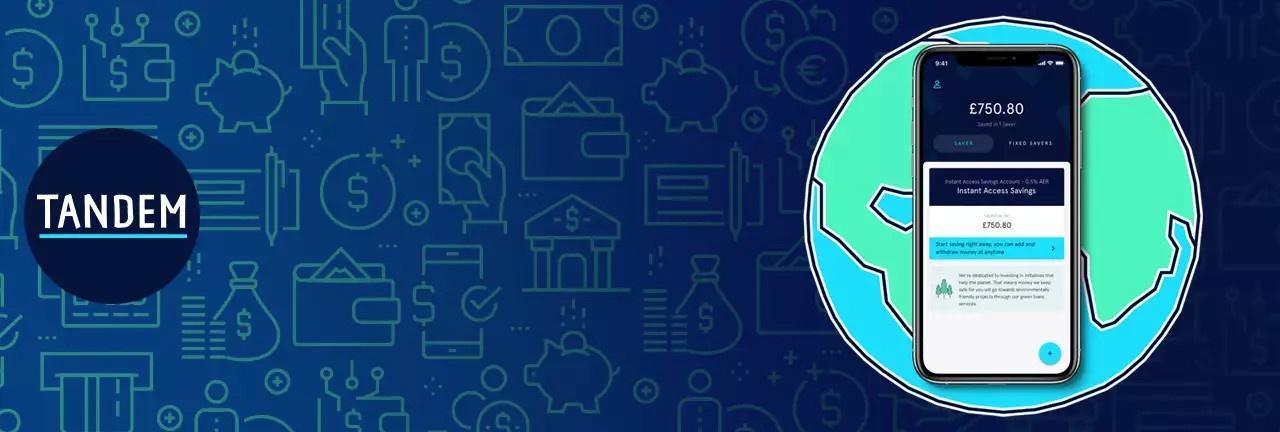Although the sector as a whole has traditionally been comparatively wary of the ever-increasing pace of technology, legal services are increasingly data driven, with an abundance of AI-related discussion emerging within legal technology circles. The core Document Management Systems (DMS) and Practice Management Systems (PMS) remain the centre of focus for how and where to deploy a variety of rapidly maturing SaaS platforms, or dedicated, highly customised suites.
On the 18th March 2024, the Information Commissioner's Office issued its updated guidance around the issuing of fines when organisations have been found liable for the integrity of their customers' or end users' data being compromised. It is already well-established now that failure to ensure critical data remains secure will result in costly fines, as we have seen repeatedly in multiple high-profile cases over the years.
Maximising performance, scalability, and compliance for a leading innovator in online banking
About Tandem Money
Tandem is 'The Good Green Bank', a fully regulated digital app‐based bank founded on the idea of putting customers' needs first whilst helping them save more than just their money by pushing for a sustainable future. The acquisition of green lender Allium in 2020, an established green homes lender, accelerated Tandem's mission into the green space. Tandem offers savings, mortgages, and loans to help customers green their properties, and eventually their lives.
Challenges
The key driver behind Tandem's ongoing digital transformation was earning a full banking license in 2018 - something that had been a core focus of their infrastructure's evolution. This meant their infrastructure would need to fulfil all legal and compliance obligations around the handling of financial data, and also demonstrate the highest standard of operational resilience.
At the time, Tandem's IT and telephony infrastructure was hosted at various separate data centres, while their banking application was hosted on AWS services, and a separate site set aside for workplace recovery. Although multiple sites were involved here, the whole network depended on the London office, creating a single point of failure.
After a comprehensive evaluation of various suppliers, Tandem engaged with Exponential‐e to ensure these critical elements could be securely interconnected in order to maximise performance and scalability and ensure all requirements for full bank status were achieved. Exponential‐e's deep experience in the financial sector was critical here, providing Tandem with complete confidence that the partnership would provide a positive contribution to their journey.
Solution
The networking solution delivered by Exponential‐e interconnected all Tandem sites via a high-performance WAN - a fully managed low‐latency solution that ensured consistent performance across all sites. This was implemented by a dedicated Exponential‐e account team, who project managed every stage of the deployment to ensure there would be no service disruption and that Tandem's long-term goals remained the primary focus throughout the deployment and beyond.
Critically, this fulfilled all compliance requirements regarding the handling and storage of financial data, while ensuring Tandem's teams would have the right tools at their fingertips at all times. To ensure a disruption free migration process, secure connections were created between Exponential-e's self‐owned network and Tandem's AWS services, allowing for a successful consolidation of the different elements of their infrastructure, and providing IT teams with a higher level of control and visibility.
As the partnership between Tandem and Exponential‐e evolved, a combination of a Virtual Private Network (VPN) and Office 365 was established as the ideal combination of solutions to further optimise Tandem's overall efficiency and enable effortless collaboration between their various teams, regardless of where they were located, with security policies applied automatically and role‐based segregation opening up a wide range of opportunities for remote working.
Throughout 2020, when the COVID‐19 pandemic forced organisations worldwide to rapidly transition to a remote workforce, the inherent flexibility and scalability of Tandem's infrastructure and a robust business continuity plan showed its true worth, as the entire workforce were able to begin working remotely with minimal disruption to day‐to‐day operations, and no compromise in terms of security and compliance. This option had already been utilised on an ad‐hoc basis by Tandem's engineers, but a scenario where it would need to be utilised on a company‐wide basis had been considered and factored into the business continuity plan, with tests taking place to ensure such measures would be viable, should they ever be needed.
In this way, Tandem has demonstrated how the right infrastructure, with the support of the right technology partner, provides organisations in even the most challenging sectors with the agility to pivot in response to unexpected, large‐scale shifts in the digital landscape. Tandem's long‐term digital transformation continues, with plans in place to bring its core banking suite in house and into the Cloud, for a further layer of control and flexibility.
Solution benefits
- High‐performance VPN connectivity across multiple sites, with secure connections to the core banking suite provider.
- Full compliance with all applicable regulations regarding the handling of financial and sensitive data.
- A stress‐free transition to remote working, with zero compromise in the security of users' financial and sensitive data.
- A strong foundation for ongoing Cloud transformation and consolidation.
Reduce complexity, increase speed and reliability
Exponential-e is a trusted technology partner for organisations across the Finance sector, offering innovative solutions that drive security, compliance and optimal performance at all levels.
Find out more in our Finance Brochure.
The GDPR deadline day of 25th May has been and gone, but sticking to the legislation remains as important as ever. This is because GDPR is, in fact, not something that can just be 'done'; instead, it is ongoing and needs to be constantly changed and updated. The onus is on housing associations to comply with GDPR not just today, but in six months, a year, two years, and beyond.






